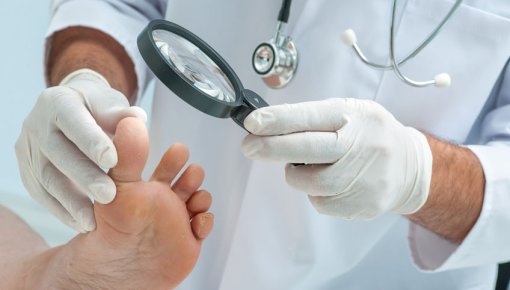Arbeitsgemeinschaft der Wissenschaftlichen Medizinischen Fachgesellschaften (AWMF), Deutsche Krebsgesellschaft (DKG), Deutsche Krebshilfe (DKH). S3-Leitlinie Prävention von Hautkrebs. AWMF-Registernr.: 032-052OL. 2021.
Arbeitsgemeinschaft der Wissenschaftlichen Medizinischen Fachgesellschaften (AWMF), Deutsche Krebsgesellschaft (DKG), Deutsche Krebshilfe (DKH). S3-Leitlinie zur Diagnostik, Therapie und Nachsorge des Melanoms. AWMF-Registernr.: 032-024OL. 2020.
Bath-Hextall F, Perkins W. Basal cell carcinoma. In: Williams H, Bigby M, Herxheimer A et al (Ed). Edvidence-based dermatology. London: BMJ Books; 2014. S. 250-263.
Fritschi L, Dye SA, Katris P. Validity of melanoma diagnosis in a community-based screening program. Am J Epidemiol 2006; 164(4): 385-390.
Gemeinsamer Bundesausschuss (G-BA). Hautkrebsscreening. Zusammenfassende Dokumentation des Unterausschusses „Prävention“ des Gemeinsamen Bundesausschusses. 2008.
Johansson M, Brodersen J, Gøtzsche PC et al. Screening for reducing morbidity and mortality in malignant melanoma. Cochrane Database Syst Rev 2019; (6): CD012352.
Robert Koch-Institut (RKI), Gesellschaft der epidemiologischen Krebsregister in Deutschland (GEKID). Krebs in Deutschland für 2017/2018. 2021.
Wernli KJ, Henrikson NB, Morrison CC et al. Screening for Skin Cancer in Adults: An Updated Systematic Evidence Review for the U.S. Preventive Services Task Force. (AHRQ Evidence Syntheses; No.137). 2016.
IQWiG health information is written with the aim of helping people understand the advantages and disadvantages of the main treatment options and health care services.
Because IQWiG is a German institute, some of the information provided here is specific to the German health care system. The suitability of any of the described options in an individual case can be determined by talking to a doctor. informedhealth.org can provide support for talks with doctors and other medical professionals, but cannot replace them. We do not offer individual consultations.
Our information is based on the results of good-quality studies. It is written by a team of health care professionals, scientists and editors, and reviewed by external experts. You can find a detailed description of how our health information is produced and updated in our methods.

